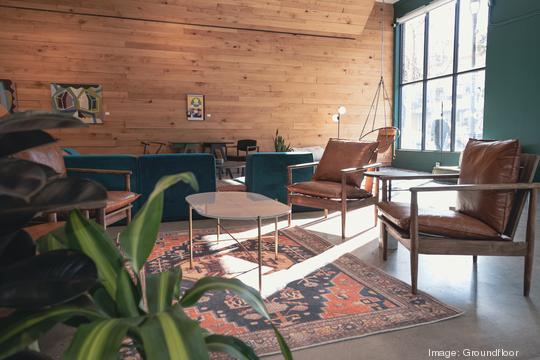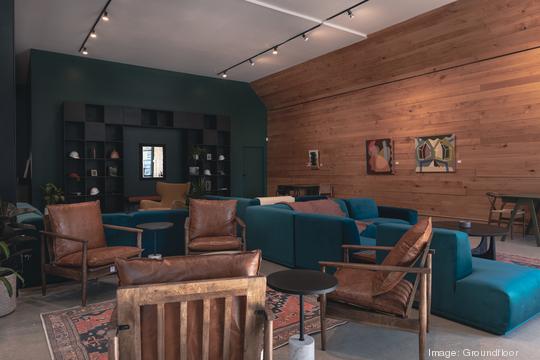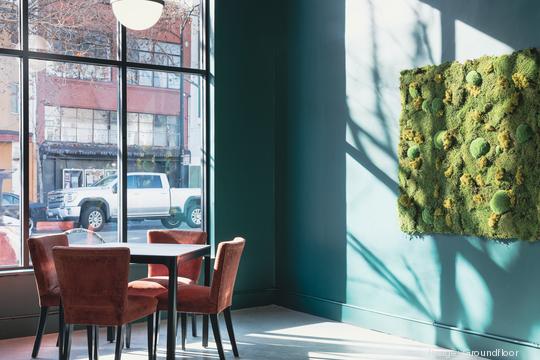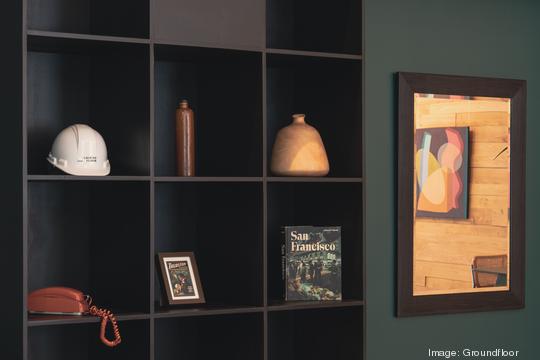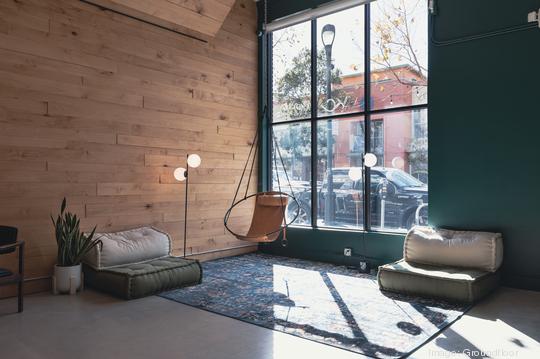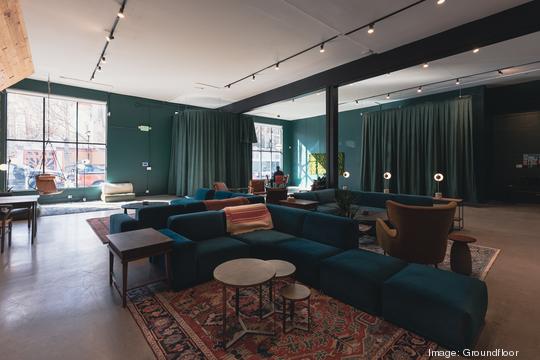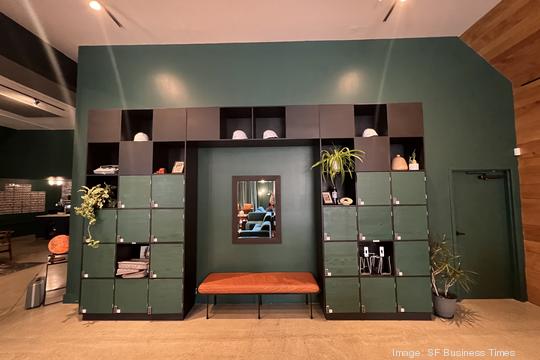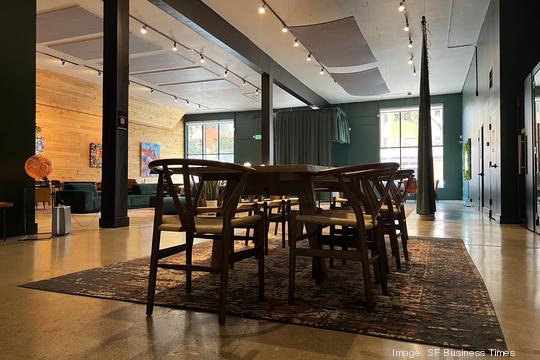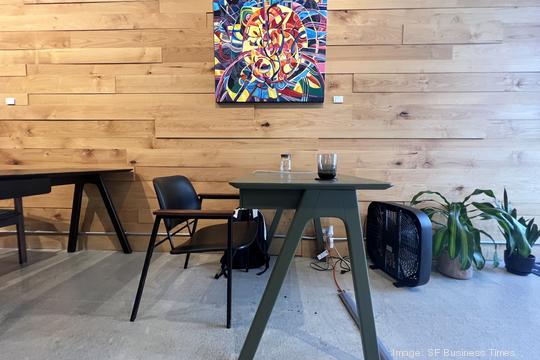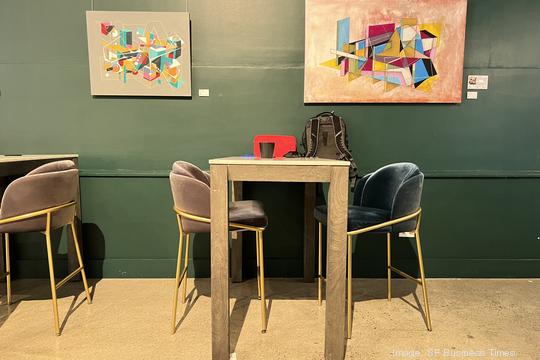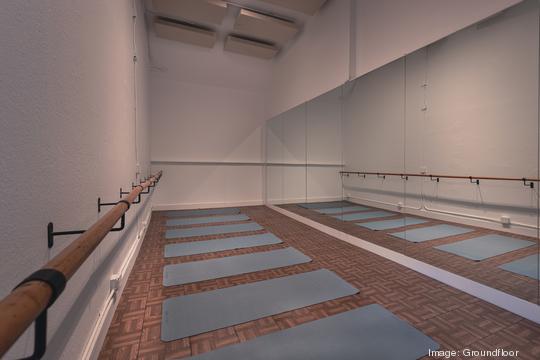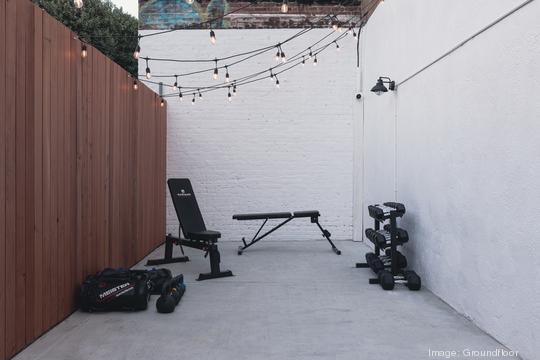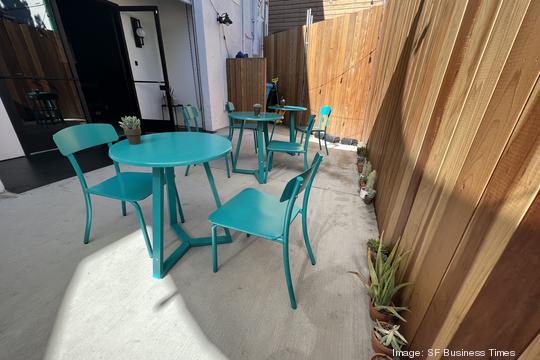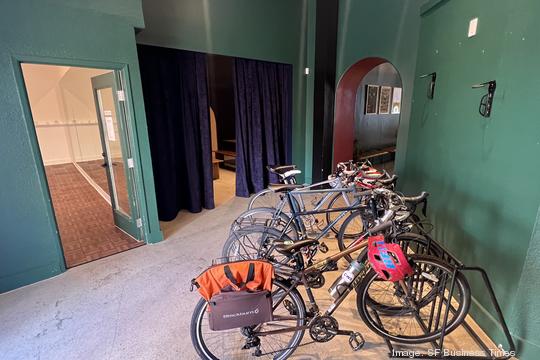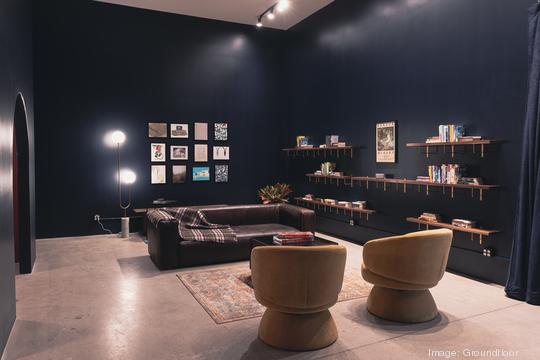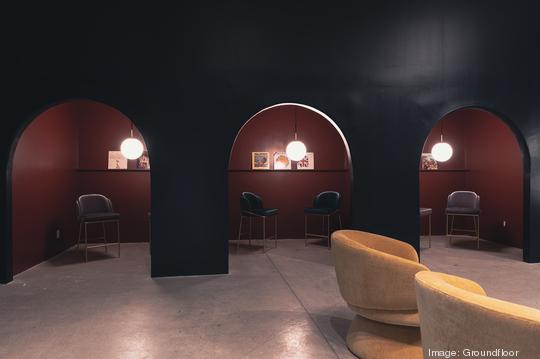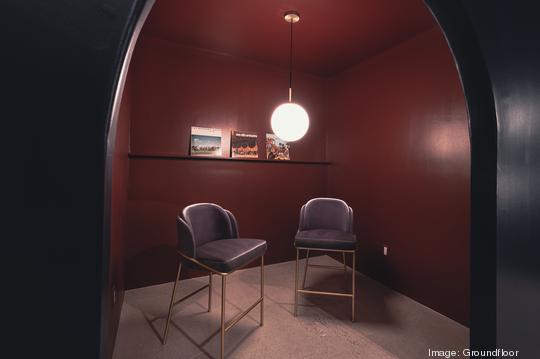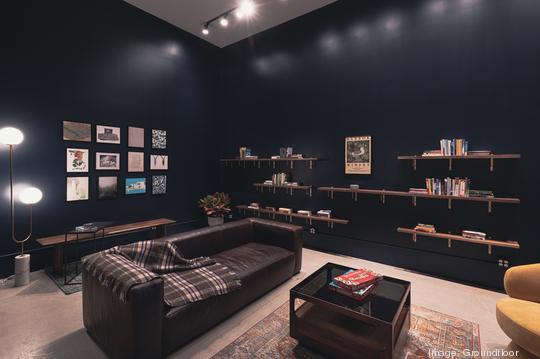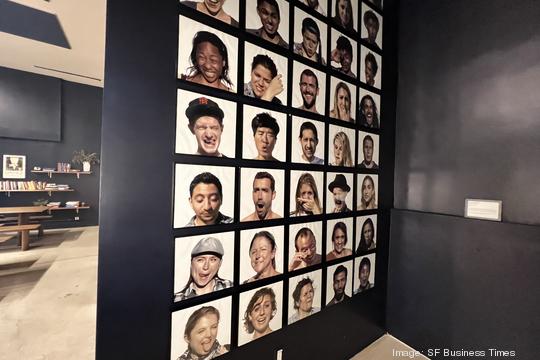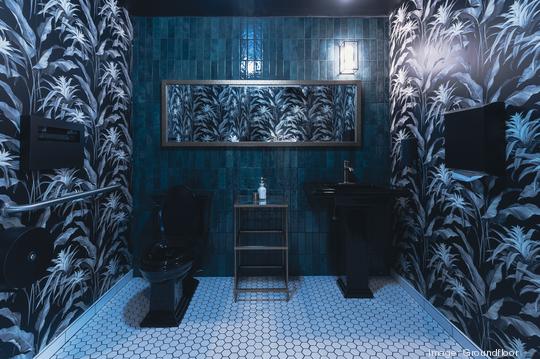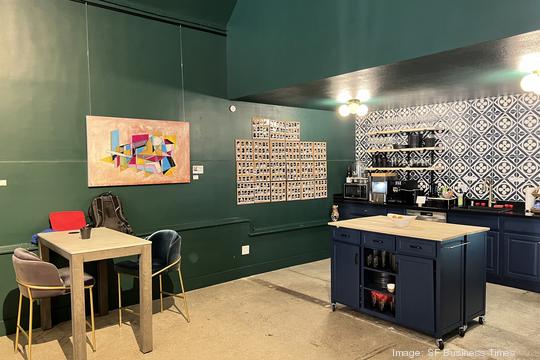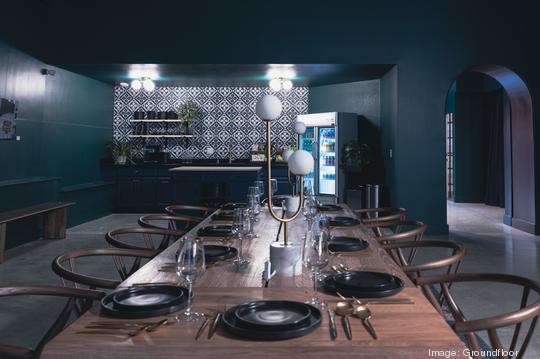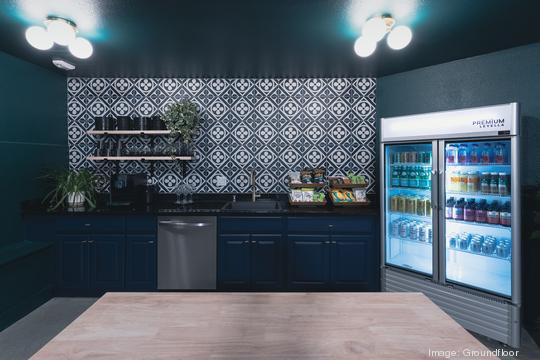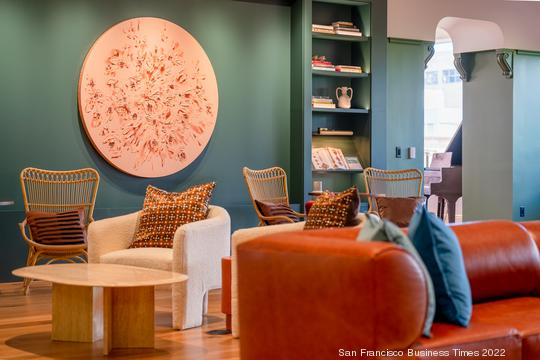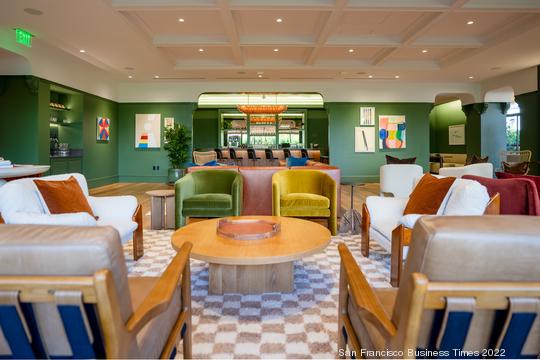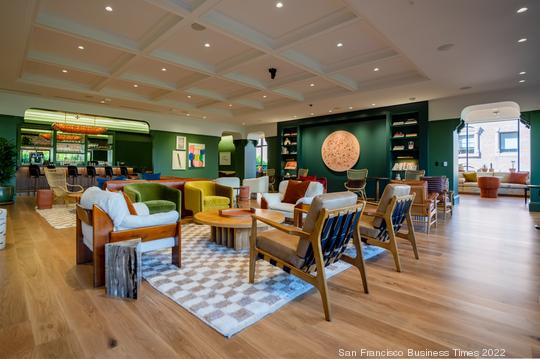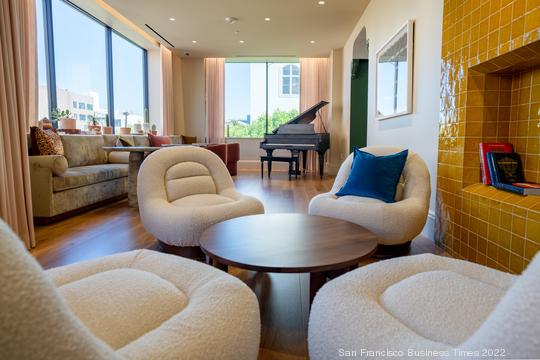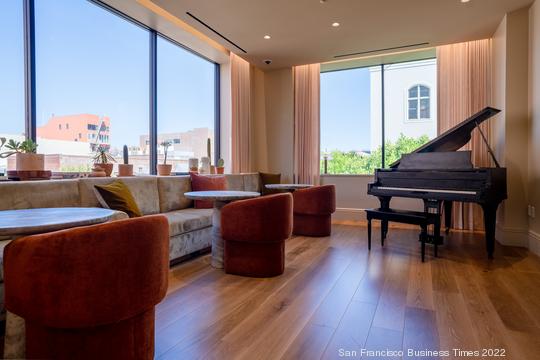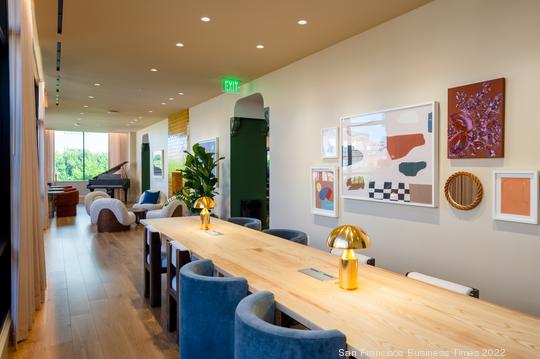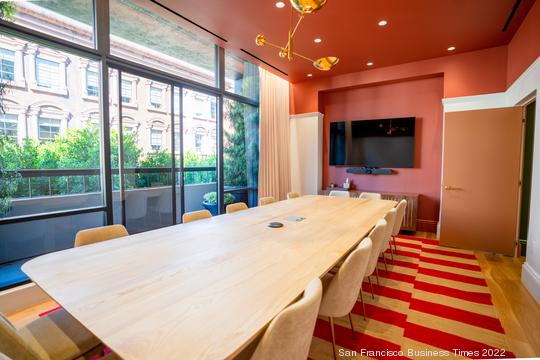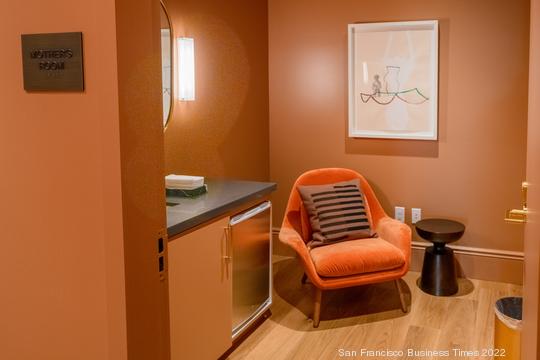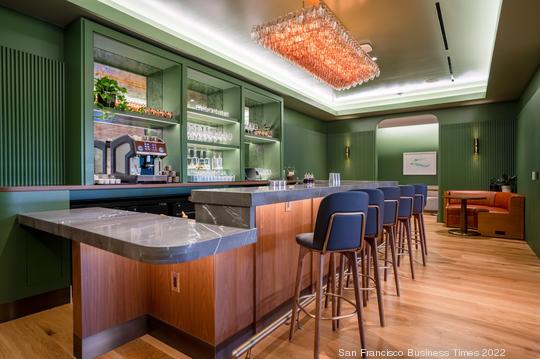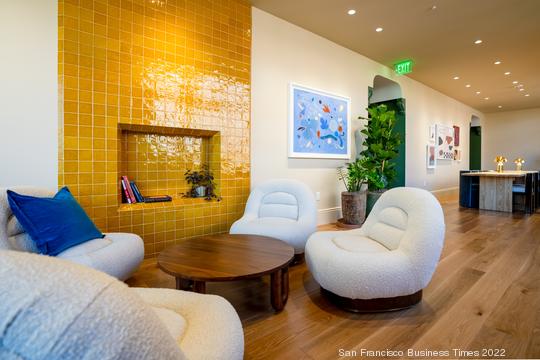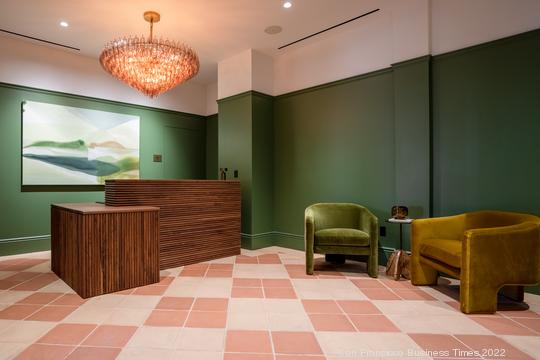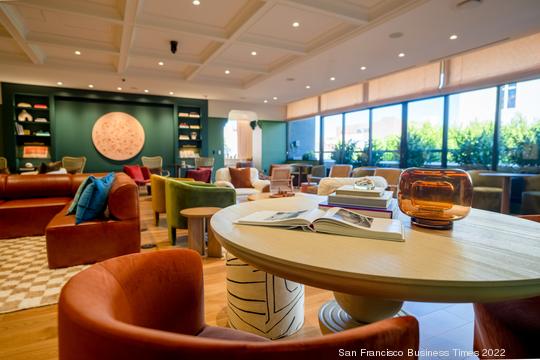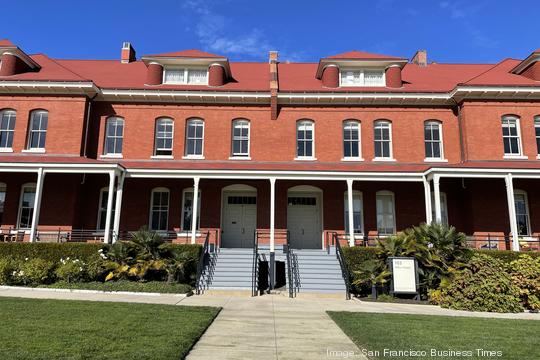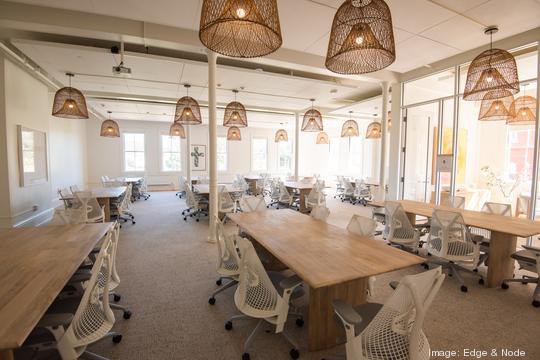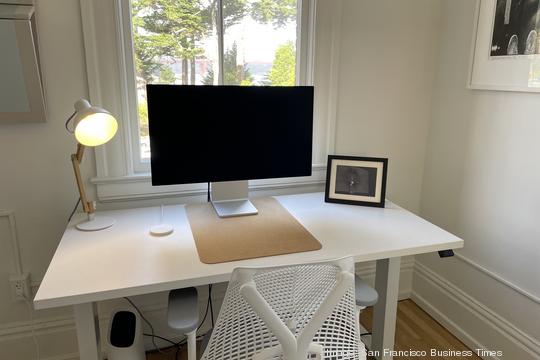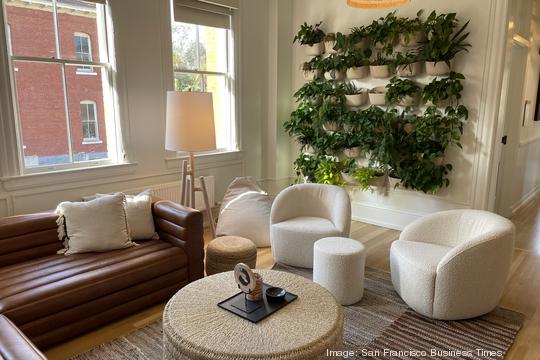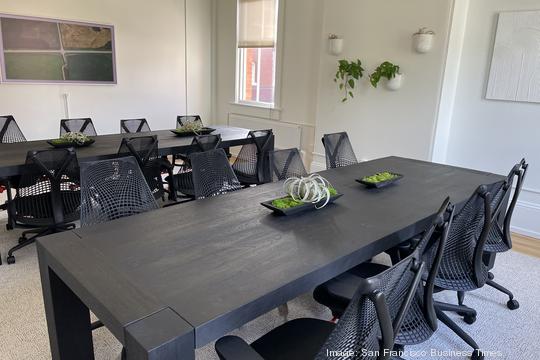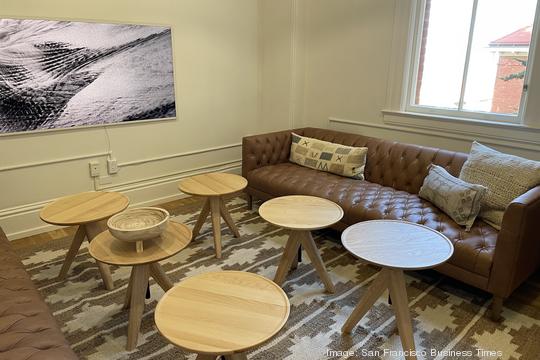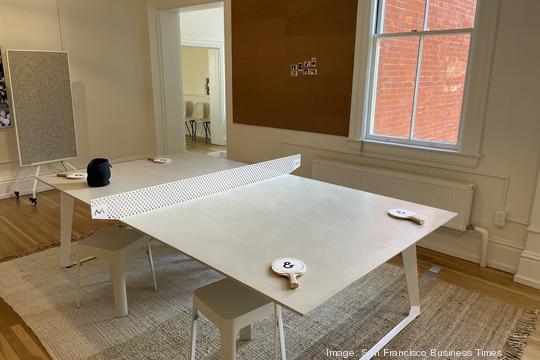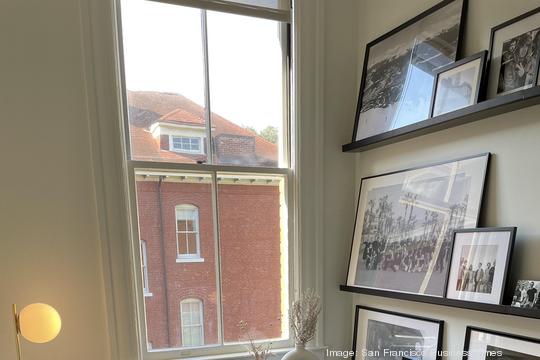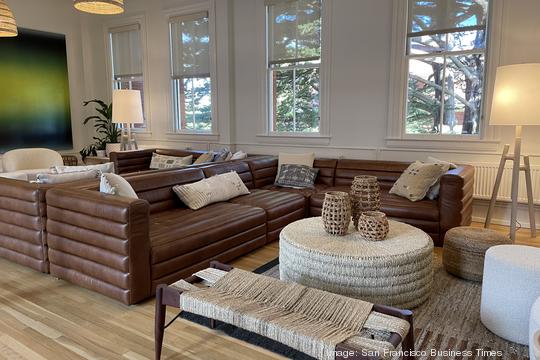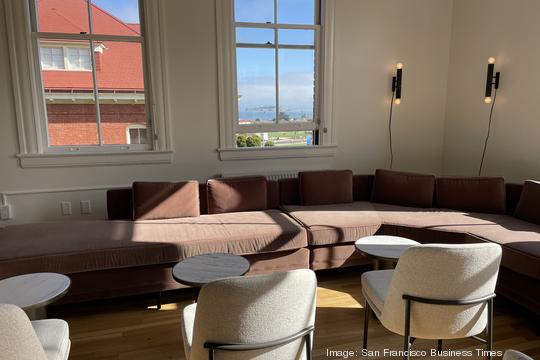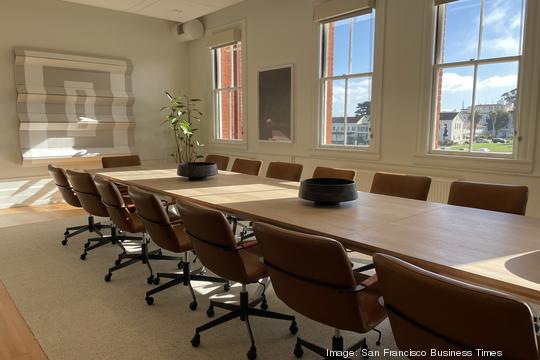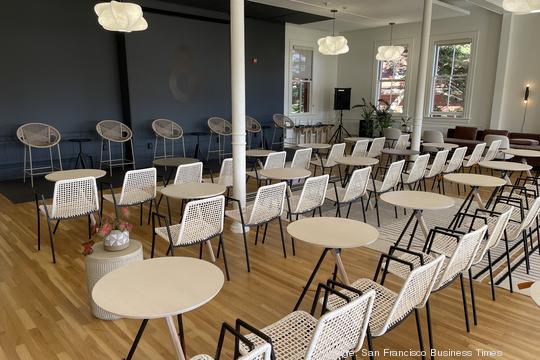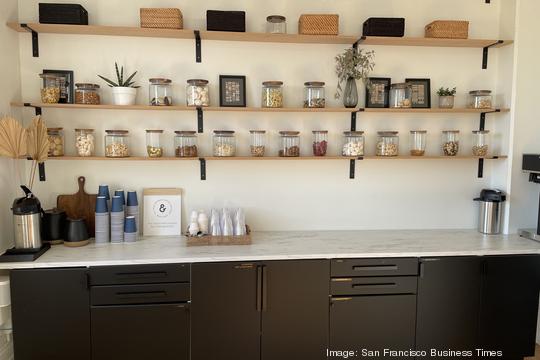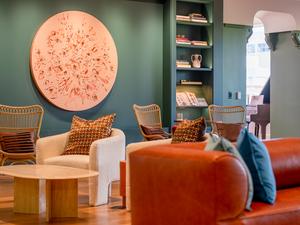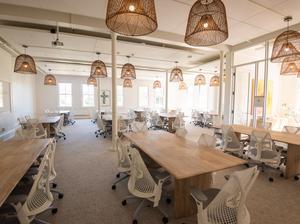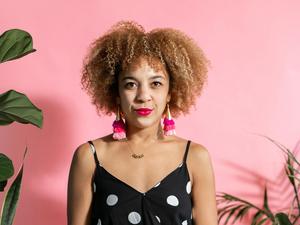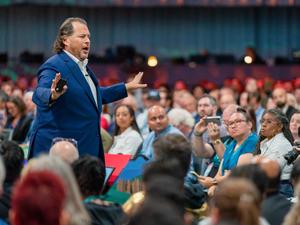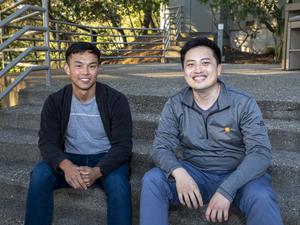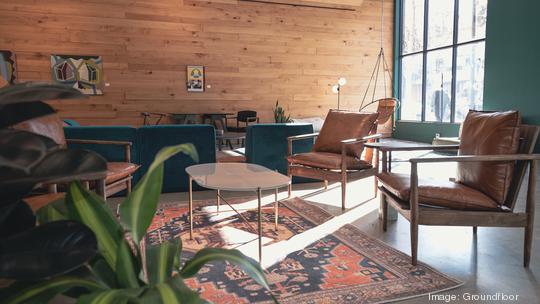
There seems to be a restlessness in the air as fewer people wear face masks while going about their daily lives. People are craving human contact after years of isolation.
To meet this general vibe shift, an emerging crop of new spaces and services are popping up around the Bay Area to provide physical places for people to connect over shared interests and experiences, whether work-related or not. Here's a look at several new places.
Groundfloor
Groundfloor is a new social club where members can lounge, lift weights, enjoy a meal, take a class and even work, though it's not primarily a co-working space.
Based in San Francisco, it opened its first location at 455 Valencia St. with about 4,000 square feet on the, well, ground floor of a two-story retail and office building.
For $200 a month, members have access to the facility, which has a main lounge area that's decked out with local artwork, couches, tables and chairs in an open floor plan that also includes a dining area and kitchen nook. Members can purchase drinks from a self-serve refrigerator (just be sure to scan to the QR code to pay) or BYOB and food.
The vibe is a bit art gallery-meets-café-meets-office. There are no white walls, but there are a couple of noise-blocking phone booths for those private conversations over Zoom/Teams/FaceTime and plain ol' phone calls. There's also a quiet "library" area, a small yoga/dance studio, an outdoor patio, gym equipment and indoor bike storage. Scroll through the gallery below for a look inside.
Groundfloor social club
Jamie Snedden founded Groundfloor in 2021 after moving to S.F. Originally from the U.K., Snedden moved here after his wife's job required them to relocate.
A trained architect, Snedden was working from home and feeling isolated, so he sought out the typical options — WeWork and cafes — but he still felt like he was alone.
"I realized that it didn't help me because my work setup was worse. I didn't have my screens and everything that I need at home, and I still wasn't talking to anyone," Snedden told me. "What I was feeling was actually isolation."
Most members live within walking distance of the club, he told me.
Each club will have around 3,000 to 4,000 square feet and have slightly different amenities depending on the actual space. The ideal locations for Groundfloor are former retail spaces that require minimal buildouts and are integrated into neighborhoods.
His goal is also to partner with other nearby businesses and vendors. The Valencia club hosts community markets, showcases works from artists who live in the Mission and partners with Love Story Yoga and Manny's Café down the block.
"We're not looking for huge shiny buildings in Grade A offices downtown," Snedden said. "We're able to tap into these assets that really fly under the radar and are not interesting to many of our competitors or startup investors, at least, to the point where many of the landlords that we talk to are up for funding the buildout themselves just to open doors."
The Valencia club already has around 350 members from a variety of backgrounds — in other words, it's not just a new playground for techies.
And they even offer a work exchange program on a case-by-case basis for people who can't afford the full cost of membership. In exchange for reduced fees, members can offer services like hosting classes or events. In fact, all members are encouraged to bring their skills and interests to the community.
One member, for example, teaches yoga. Another has led boxing lessons, Snedden told me.
Investors apparently see potential in the business model, too. Groundfloor has raised $2 million in seed funding from investors 2048 Ventures, Vitalize, Sterling Road and Gaingles.
Users have an app which acts as a digital key for entry into the building (a feature built by U.K.-based Doordeck). It's also used to process payments (Groundfloor uses Stripe), manage their profiles, find other members and sign up for events. Members get access to a private Discord server, as well. And a dating feature could be added in the future.
"We really lean into friendship between individuals more than anything else. You can work in our space, but there's only four desks," Snedden said. "We go really heavy on the social side because most of our members are using it to supplement another work space whether that's work from home, a corporate office or even a WeWork."
Groundfloor anticipates opening two more locations next year: another in S.F. and one in Oakland.
Chief
San Francisco also has a new clubhouse for women in executive leadership. New York-based Chief provides mentorship, networking and support both virtually and in-person. Click here to read more about Chief, or take peek inside in the gallery below.
Chief's S.F. Clubhouse
House of Web3
For crypto and Web3 enthusiasts, the blockchain company Edge & Node has opened a co-working space in the Presidio thats invite-only for people working on Web3-related projects. Read more here, and check out the space below.
House of Web3 "co-creation" space in the Presidio
Dinners for 6
A New York startup, Okel, is experimenting with bringing strangers together over a meal.
I tried it recently in S.F. during TechCrunch Disrupt. They called it "Dinners for 6" and matched me with five other conference attendees.
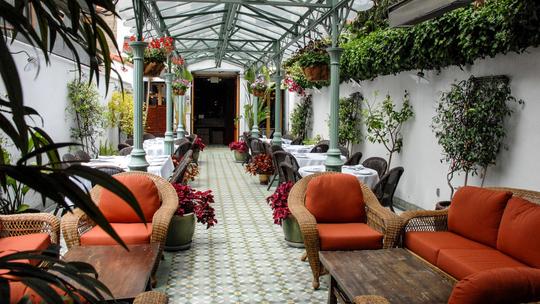
After having us fill out a questionnaire, the organizers paired participants into groups of six and made reservations for us at a restaurant. The service was free, but the food was not. My group was sent to Le Colonial, a French-Vietnamese restaurant near Union Square, where we engaged in spontaneous conversations that ranged from space exploration and Elon Musk to homelessness and politics.
Okel was founded by Farah Al Chammas last year, and she has described her own feeling of loneliness as the impetus for starting the company.
The Coven
Another community-oriented space called The Coven is eyeing a national expansion.
Based in Minneapolis, it's creating inclusive spaces women, people of color, nonbinary and transgender entrepreneurs.
It offers virtual memberships and access to its physical spaces is extra.
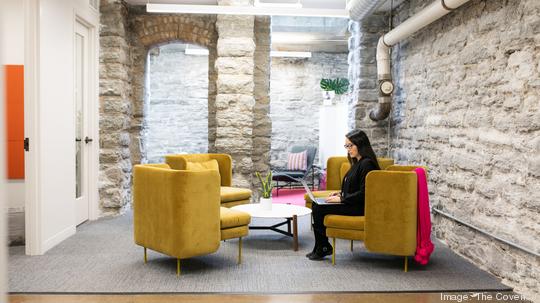
“We're looking at places that are underdog cities,” co-founder and CEO Alex West Steinman recently told Minneapolis Inno.
So, the Bay Area might have to wait in line. The company is looking at cities like Denver and Nashville next.
But you can take a look inside one of their spaces at the Minneapolis/St. Paul Business Journal here.
